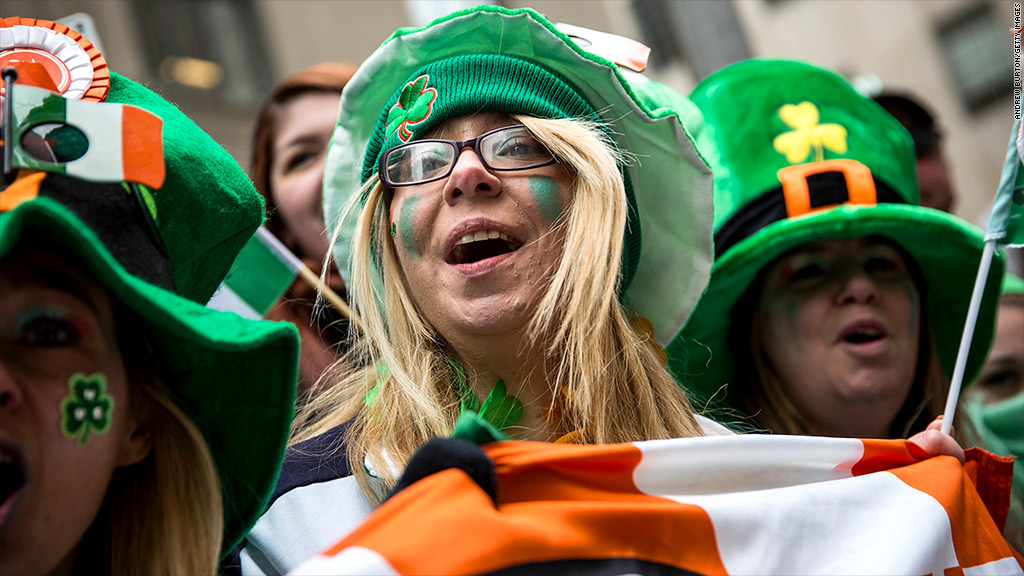
Three big beer companies dropped their support of St. Patrick's Day parades over policies that prohibit gay and lesbian groups from marching.
A social media firestorm has erupted as a result, and related stories have received tens of thousands of comments from beer lovers, Irish enthusiasts, and LGBT activists and opponents.
But why are the parades such a hot button issue?
On Friday, Sam Adams (SAM) pulled its sponsorship of Boston's parade. Guinness and Heineken (HEINY) followed by withdrawing sponsorships of New York City's parade. But both of these events have had rules in place for years that prohibit sexual orientation from being displayed -- meaning LGBT (lesbian, gay, bisexual and transgender) groups have been unable to march openly.
Related: Guinness pulls out of St. Patrick's Day parade
For the first time, however, companies are realizing that getting on the wrong side of the LGBT community could have a serious impact on their reputation -- and business, said Deena Fidas, director of workplace equality programs at the Human Rights Campaign.
"The St. Patrick's Day parade has become this major watershed moment," Fidas said. "It's largely symbolic, because we're seeing an appetite for getting rid of the last vestiges of discrimination."
Boston and New York City parade organizers -- the Allied War Veterans Council and the NYC Saint Patrick's Day Parade -- could not be reached for comment.
Sam Adams decided to withdraw its support of the parade after a local bar threatened to no longer serve its beer, while gay rights icon Stonewall Inn said it would dump Guinness if the company continued to sponsor the parade.
But the beer giants weren't just worried about a few bars dropping them. They were trying to get ahead of the public outrage that would likely occur if they'd supported the parade, said Fidas.

In a similar decision earlier this year, Walt Disney Co. (DIS) announced it will stop funding the Boy Scouts of America because of the organization's policy banning gay leaders.
In just the past year, the Supreme Court overturned the 1996 law defining marriage as between a man and a woman -- meaning same-sex married couples are now eligible for more than 1,000 spousal benefits. There are now 17 states where same-sex marriage is legal -- more than double the number in 2012.
As the tide turns, companies are realizing they need to get in line with public opinion or risk the wrath of customers. That's why a record number of U.S. corporations now have nondiscrimination policies in place and offer same-sex benefits, says Fidas. Hundreds of businesses also publicly urged the Supreme Court to overturn the Defense of Marriage Act -- including companies like Apple (AAPL) and Citigroup (C).
"We've seen more change in the last 12 to 14 months than we ever have in regards to corporations becoming more public in their support of LGBT equality," she said.
Related: Record number of U.S. firms offering same-sex benefits
And while a lot of it is just smart business, firms are also trying to make sure that their public stances reflect their company policies of treating LGBT employees equally.
"They say, 'We wouldn't tolerate any discrimination at our company, so why would we tolerate it somewhere else,'" said Fidas.
Ford (F) is one of the last major U.S. companies to keep its sponsorship of the New York City St. Patrick's Day parade, but the company was not immediately available for comment. LGBT advocacy group GLAAD said a number of colleges and universities are also still sponsors.
Both the Boston and New York City parades have removed lists of sponsors from their websites.
